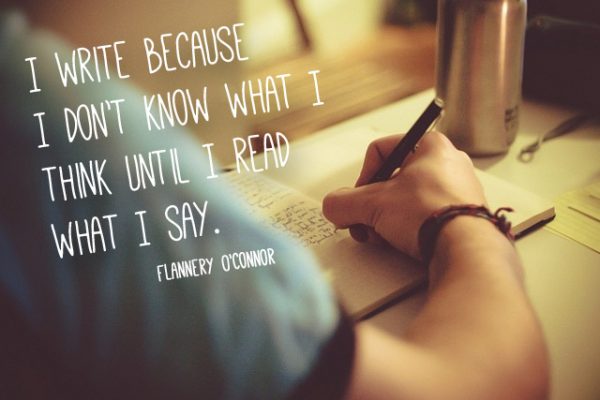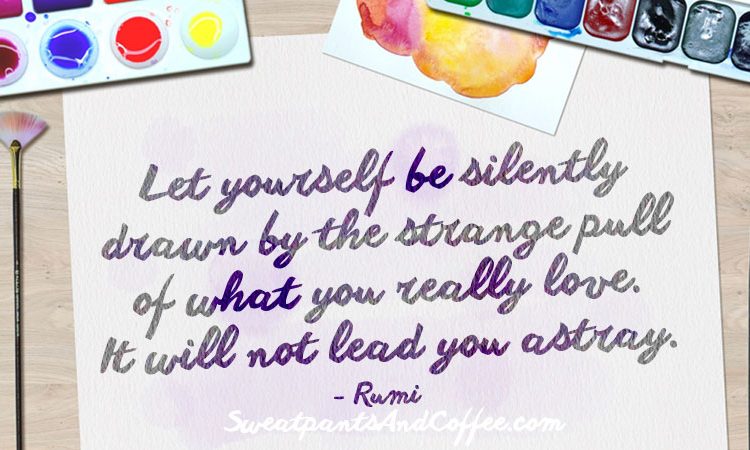This is how my mornings used to look: my first novel was about to be published and I was running a one-woman mad-house of promotion. Up at 5am, I’d post the day’s blogs, fill a tweet stream with those diminutive phrases that sound like half-formed thoughts, answer emails and FB messages, reply to new “friends” in both locations, assemble agenda items for my writer’s collective, and on and on.

 This work by David Joyce is licensed under a Creative Commons Attribution-ShareAlike 3.0 Unported License.
This work by David Joyce is licensed under a Creative Commons Attribution-ShareAlike 3.0 Unported License.
By the time my son woke at 7:30, I was knee deep into virtual work, barely able to tear myself away just to make my child breakfast and ready him for school. We constantly ran late to everything; but worse: I felt fractured. The girl who used to read a book a week, I now found my attention span byte-sized or 140-characters long. I was having trouble reading more than a few sentences without distraction, and there was “never” enough time to do my fiction writing.
I began to ache for that deep, still feeling from my childhood: where, when given a choice, I chose books over TV. Where I could write in my notebook for hours. Where nobody had a personal computer unless their parents worked in “electronics.” I missed the way focused attention made my brain, and thus my nerves, feel steady. And the insult to injury: the gorgeous gold and black journal I’d bought myself as a reward for finishing my novel lay empty months later.
I had stopped journaling.
Journaling, many incorrectly think, is a navel-gazing act of narcissism, or a series of rants about bad things that have happened to you. In actuality, it’s having a conversation with oneself, nothing less than a meditation and an exploration of what is really going on in the monkey cage of your mind. What’s more, science has now proven there are health benefits to journaling: like bio-feedback, journaling slows down brain waves, lowers heart rates and steadies the breathing; it provides a channel to one’s left-brain, which leaves room for the creative right-brain to flow; ill people who journal find their health improves. Though science doesn’t fully understand why this is the case, as a life-long writer it makes perfect sense to me. Writing has always kept me company, revealed me to myself, and let me safely release the things that I would otherwise allow to turn toxic, instead.
With all this in mind, I took a deep breath and made a vow with myself: I would meet myself on the cool blank page without any hyper-links to click or info streams to jar me from myself.
Do you know what happened?
A new calm descended upon me. I paid more attention to my son in the morning. We started to get places on time. The first few days’ entries were short, of course. I was still pulled away several times, easily distracted by the cat attacking the curtain, or the sound of my neighbor’s dog. And then, a few days in, my son was waking up an hour and a half later and I was still writing. My formerly anorexic journal bulked up. I felt oddly more alive. And my lamentation of having no time to write? The journaling time morphed directly into fiction writing, new ideas sprouting daily.
Psychologists, healers, philosophers and prophets have said the same thing for time eternal: self-observation leads to awareness, change, healing and integration. Not everyone has the time, money or inclination to go to therapy. But your wise inner self is always waiting, a few ink strokes away.
Two weeks anew into my journaling process, I feel reconnected to myself, which plugs me deeper into my life, my family and myself. And when I come back to the computer to promote, I finally have something worth talking about.





Your journal prompt:
Imagine yourself taking a journey to the top of a mountain, in which is a deep cavern. Someone or something is waiting for you inside. Describe the journey if you like—arduous or gentle? And the scenery—pastoral or icy crags? When you arrive, are you happy or scared to enter? Who or what is inside? What information do they have for you? Find out now. Set a timer for a minimum of 10 minutes and go.





Aurelie K Jordan
Hello Jordan,
Thanks so much for this wonderful post! I will certainly be keeping my eye out for new posts here!
xxoxx,
Aurelie
Aulii
Thought I would struggle to write for 10 mins with the boys video game marathon going on in the background but I ended up going for almost 20! Thank you! Looking forward to more.
Dawn Herring
Jordan,
Your post provides a most intimate view of how journal writing truly enabled you to reconnect with yourself so profoundly, enhancing your view of life and relationships with those you love. It is truly a testament of the empowering dimension journaling can provide. How uplifting and inspiring!
I have chosen your post, Journal to the Center of Yourself, for the #JournalChat Pick of the Day on 7/15/13 for all things journaling on Twitter; a link will be posted on the social networks, on my blog and website Refresh with Dawn Herring, and in my weekly Refresh Journal: http://tinyurl.com/lnt5d5g.
#JournalChat Live is every Thursday, 5 EST/2 PST, for all things journaling on Twitter.
Thanks again for sharing this heartfelt testimony of the power of journaling.
Be refreshed,
Dawn Herring
Your Refreshment Specialist
Host of #JournalChat Live and Links Edition on Twitter
Author of The Birthday Wall: Create a Collage to Celebrate Your Child
july reflection: rain & spark | Lori-Lyn Hurley
[…] Journal to the Center of Yourself […]